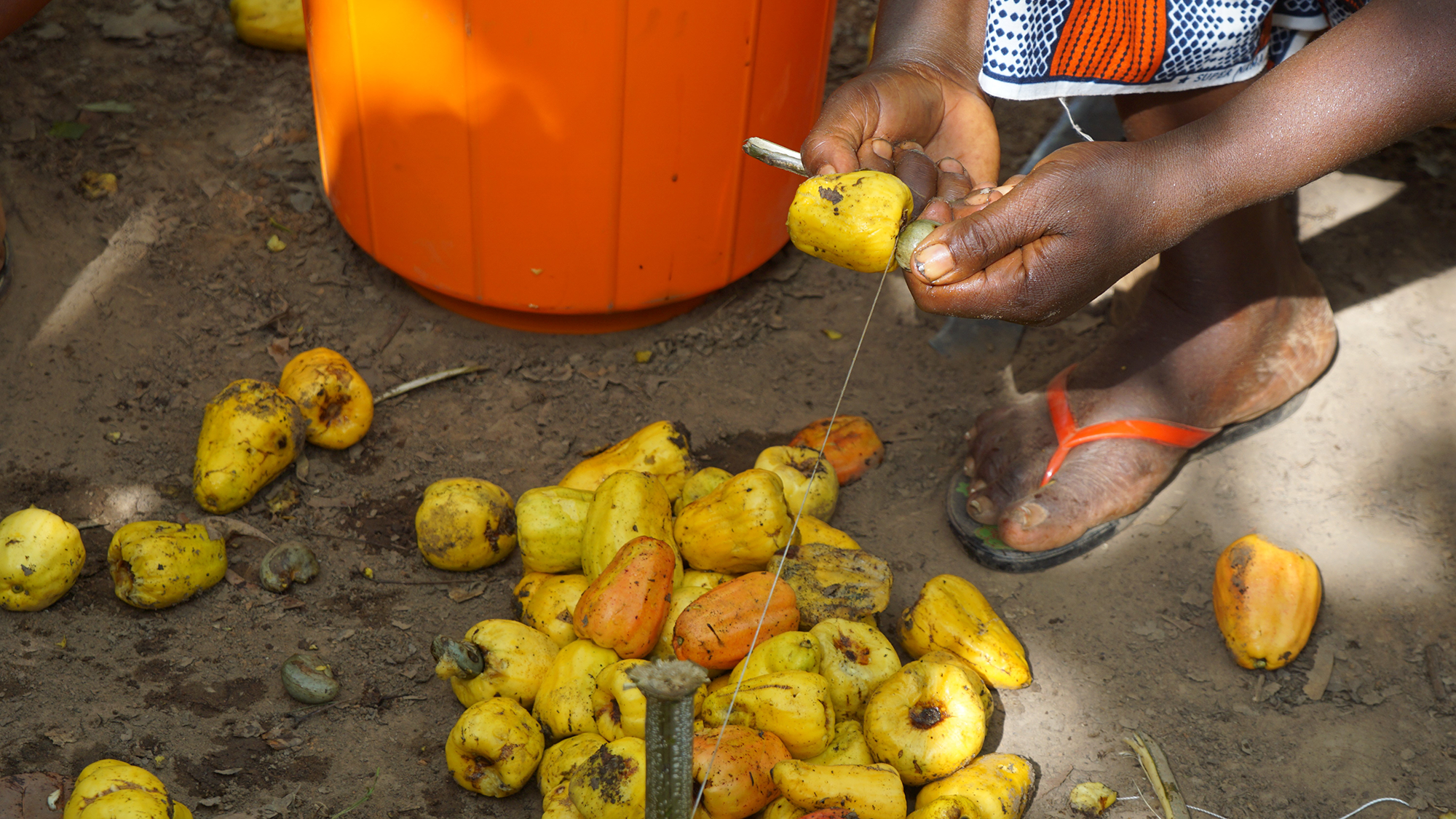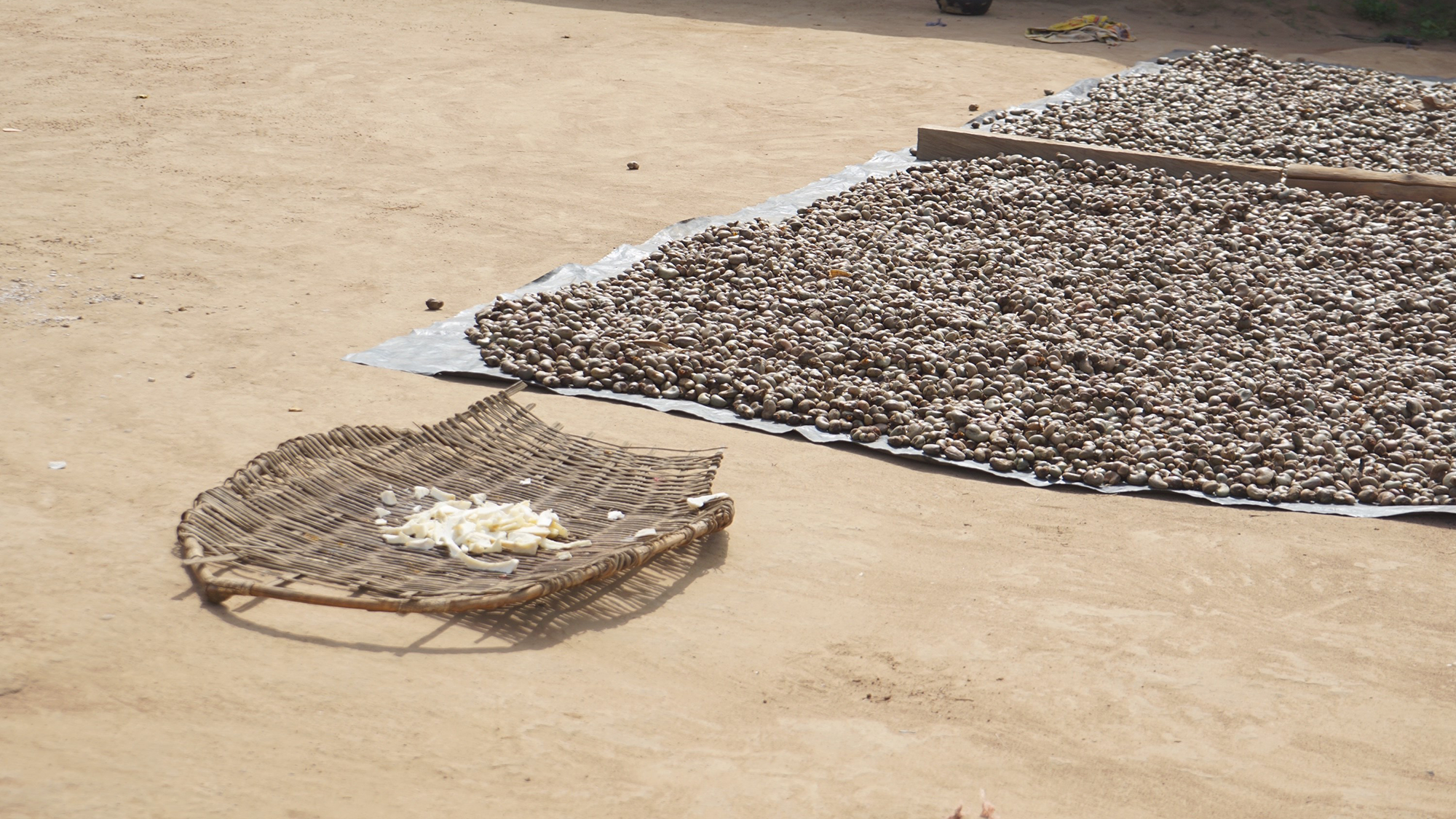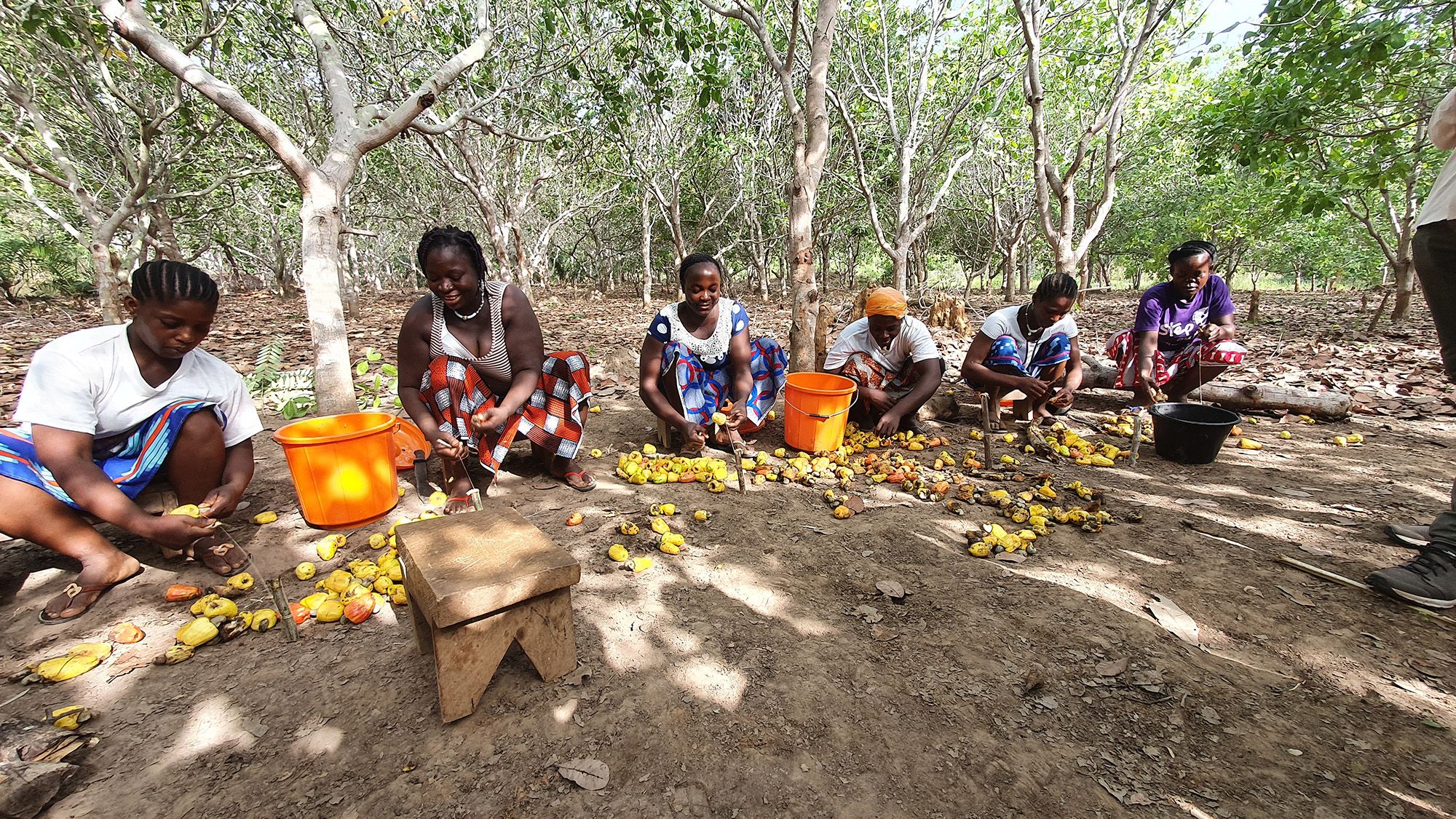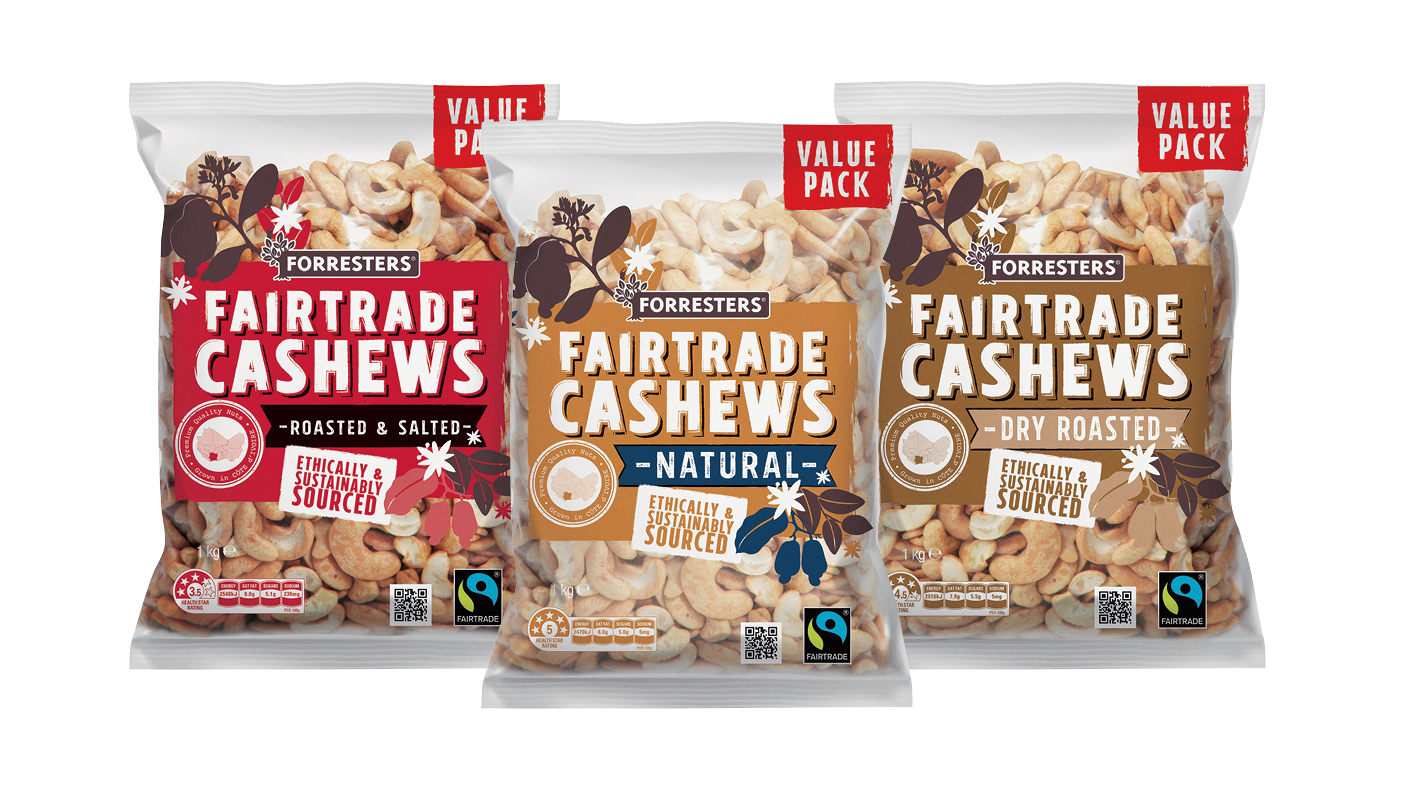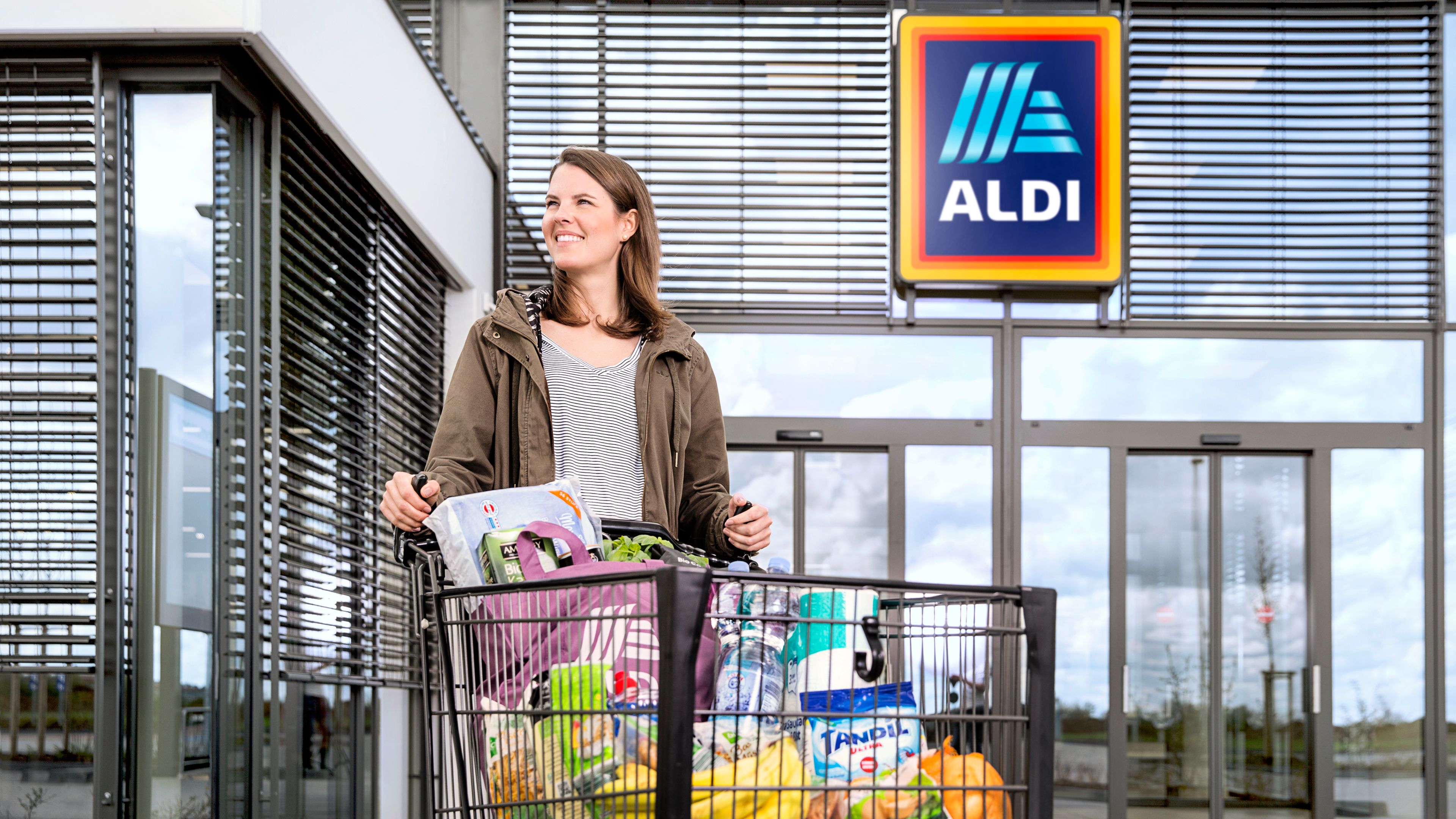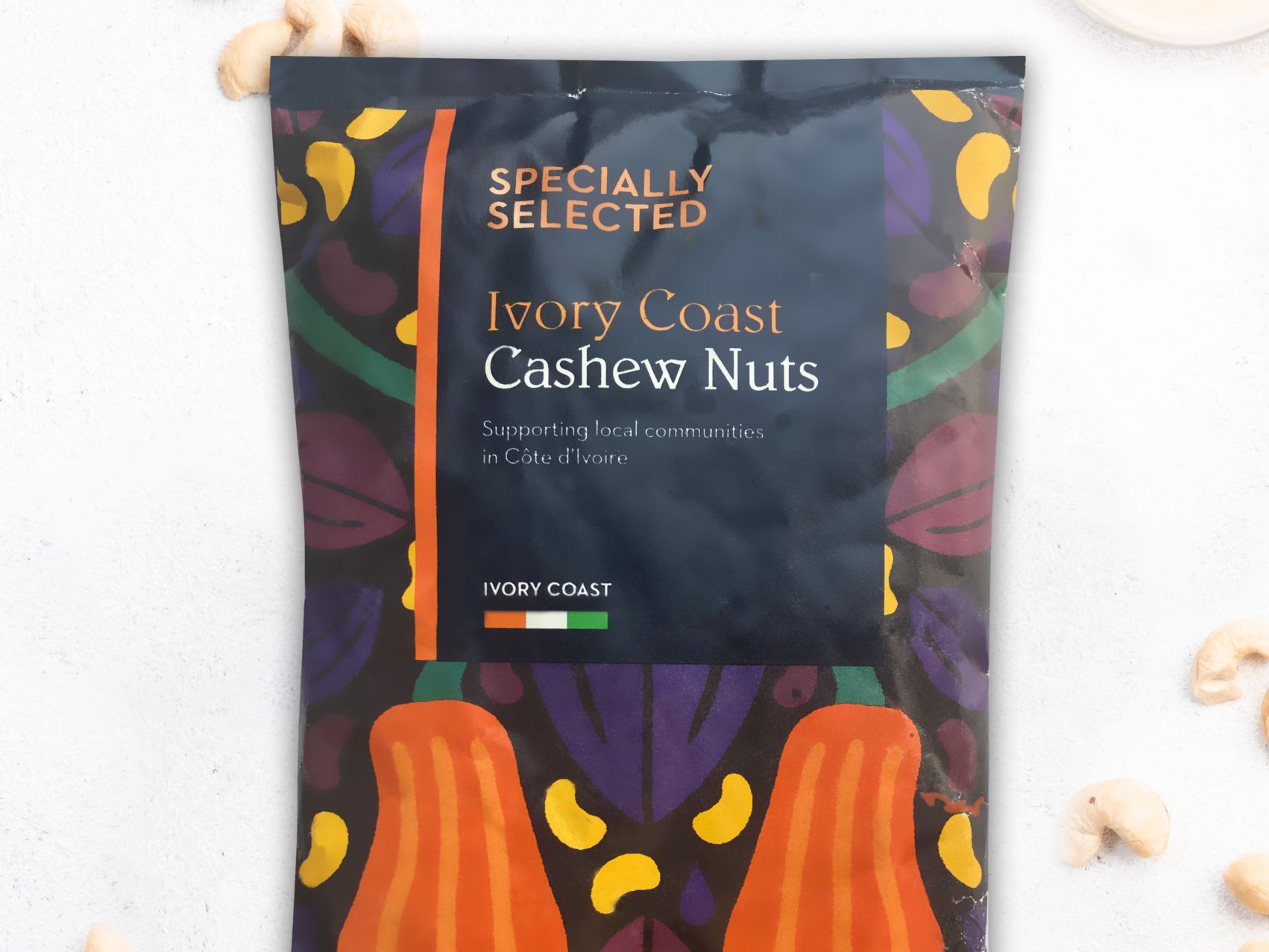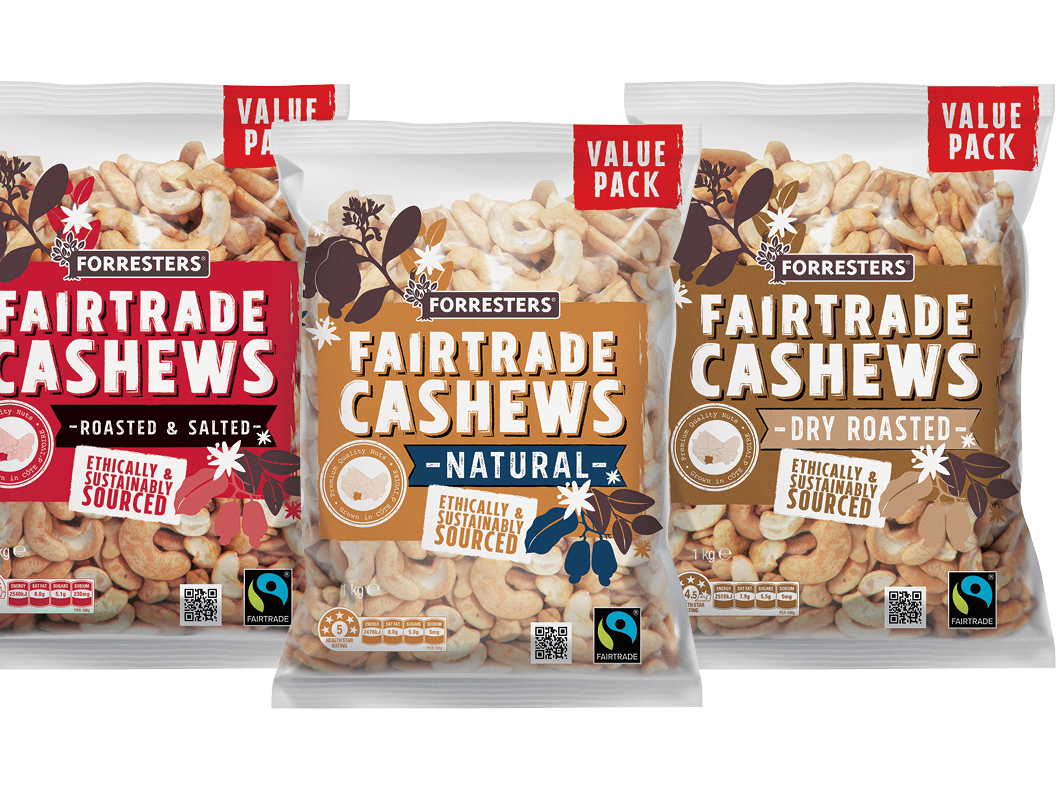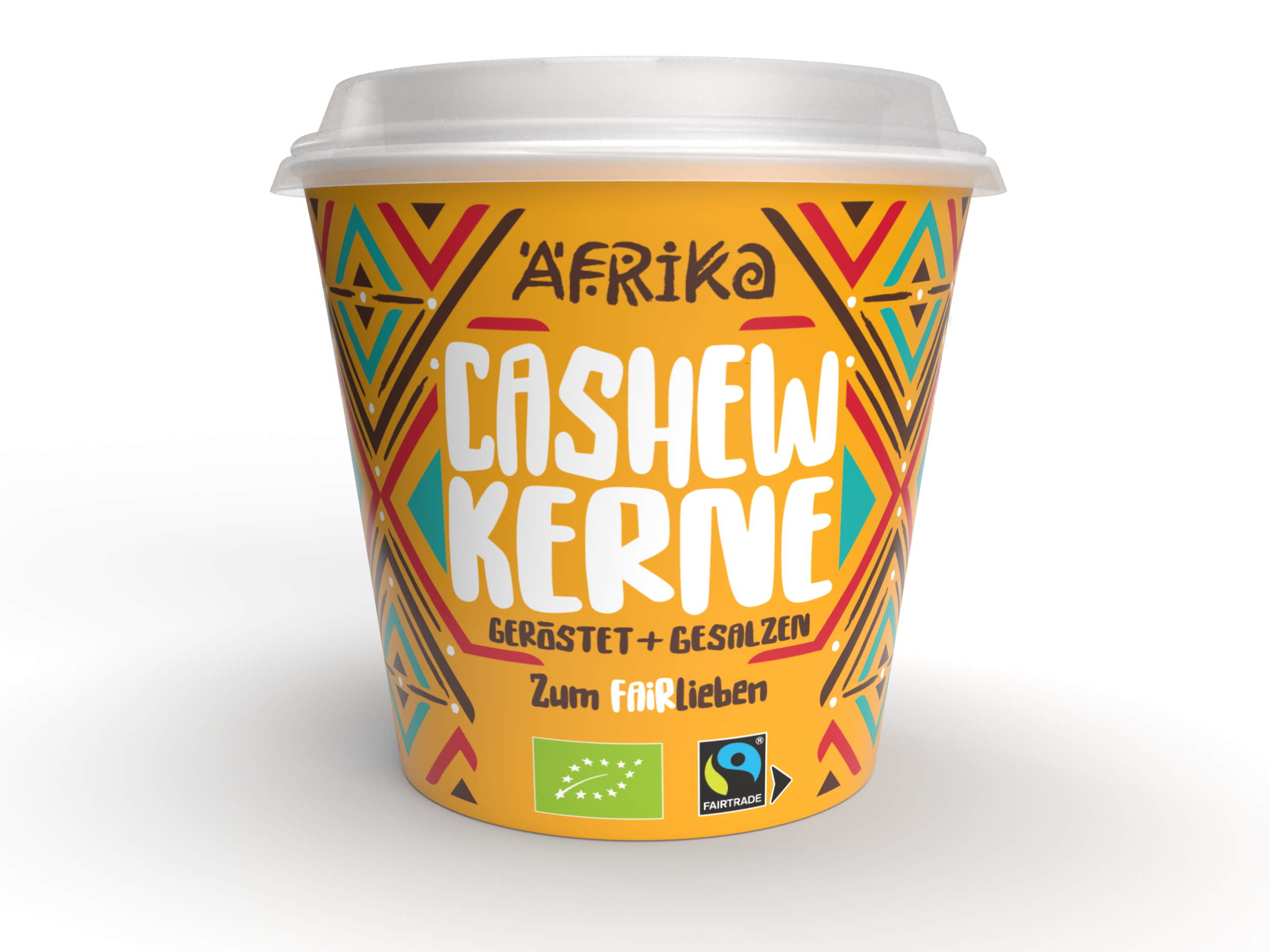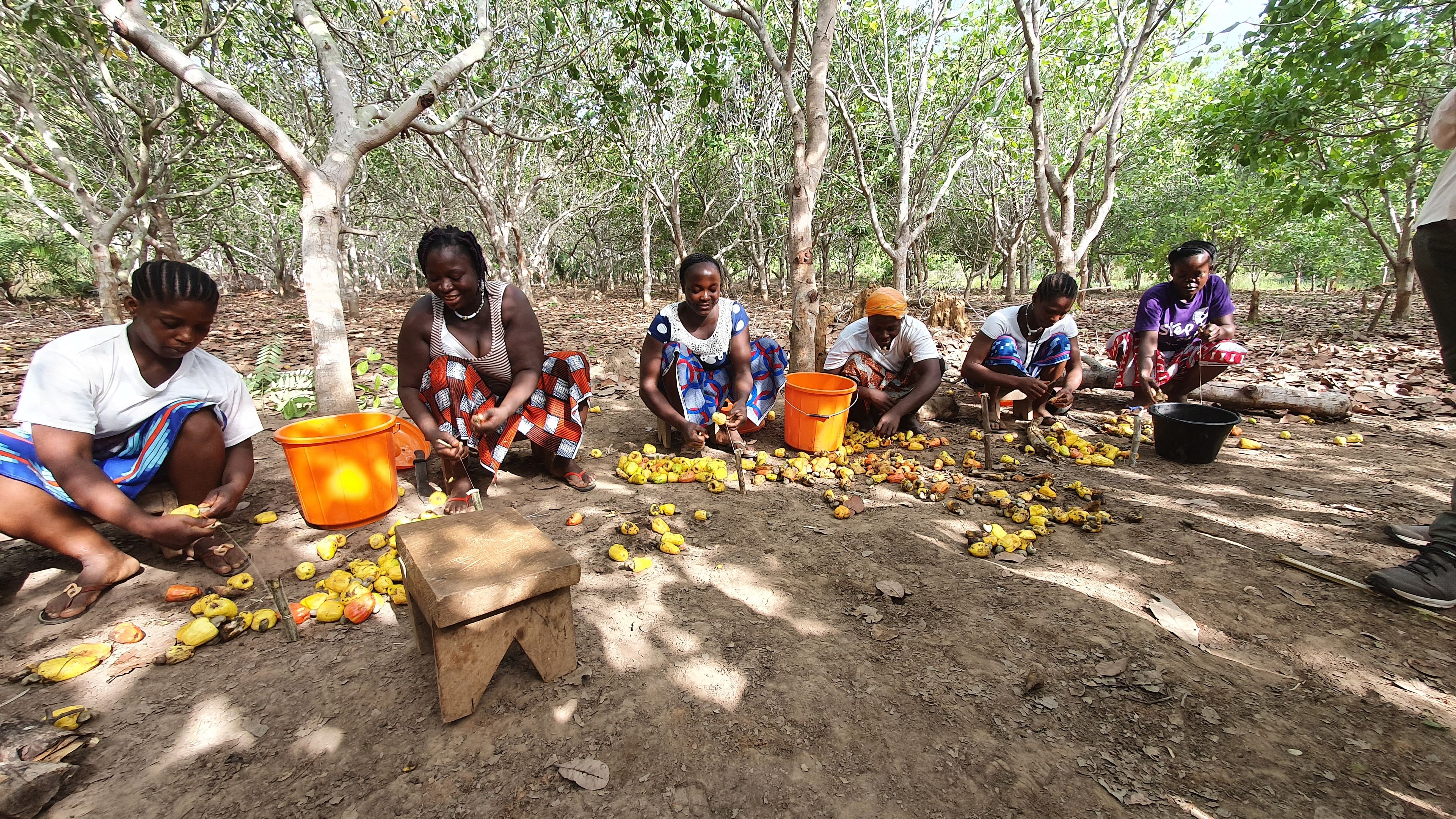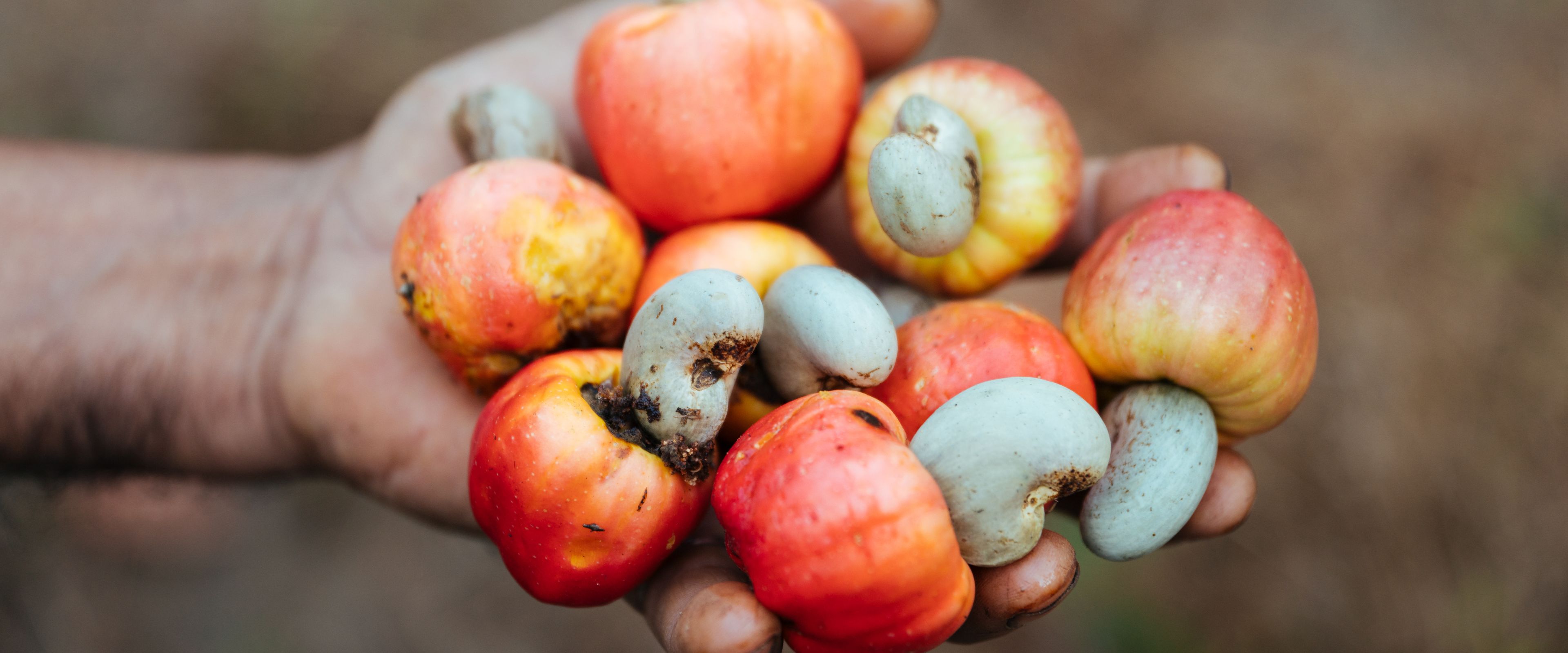

The ALDI SOUTH Group has been on a cashew mission to Côte d’Ivoire, teaming up with West African suppliers to bring sustainably sourced cashews, grown and processed locally, to its customers.
Eaten in many forms, cashews are an important part of our diet. Global production has almost doubled over the past decade. According to data from the International Nut and Dried Fruit Council Foundation, cashews accounted for Cashews account for 20% of the world's nut production in the crop year 2022/23, behind only almonds and walnuts.
Cashews support millions of people around the world, from farmers through processors to traders. They are mainly grown by smallholder farmers, who often pass on their land to their children.
Cashews differ from other nuts because they are not always grown and processed in the same country. Significant volumes of the raw cashew nuts are grown in West or East Africa and then transported to Vietnam or India for cracking and shelling to obtain the cashew kernel. From there, they are exported to manufacturers around the world for final processing, such as roasting, salting and/or flavouring, as well as packing before reaching retail stores. The journey of cashews is long and complex, which leads to challenges such as increased transport and shipping, which create more emissions.
Many people are involved in bringing cashews to our stores. As a result, it can be difficult to achieve full transparency on the supply chain and to ensure human rights are safeguarded. The ALDI SOUTH Group aims to better understand working conditions along the supply chain, including issues affecting women and smallholder farmers.
Cashews differ from other nuts because they are not always grown and processed in the same country. Significant volumes of the raw cashew nuts are grown in West or East Africa and then transported to Vietnam or India for cracking and shelling to obtain the cashew kernel. From there, they are exported to manufacturers around the world for final processing, such as roasting, salting and/or flavouring, as well as packing before reaching retail stores. The journey of cashews is long and complex, which leads to challenges such as increased transport and shipping, which create more emissions.
Many people are involved in bringing cashews to our stores. As a result, it can be difficult to achieve full transparency on the supply chain and to ensure human rights are safeguarded. The ALDI SOUTH Group aims to better understand working conditions along the supply chain, including issues affecting women and smallholder farmers.
Our African Cashew Project
Through our African Cashew Project, we directly ship cashews from West Africa to ALDI SOUTH Group markets where they are packed and sold. This shortens the supply chain while maintaining excellent quality and taste. By sourcing directly from the country of origin, we not only reduce supply chain emissions and complexity but also support existing processors and help to improve the livelihoods of farmers, factory workers, and their families. The reinvestment of value in the community supports the financial independence of the predominantly female workforce in farms and factories.
ALDI's fact-finding mission to Côte d’Ivoire
In March 2022, the ALDI SOUTH Group travelled to Côte d'Ivoire to gain a deeper understanding of the African cashew industry. Six people from three departments spent a week travelling across the region, meeting suppliers and visiting cashew processing facilities and farming cooperatives. This trip provided valuable insights into the challenges and key impact drivers of Ivorian cashew nuts. These experiences enable us to better support local cashew-growing communities and promote sustainability in our cashew supply chains.
At the cashew factories, the ALDI SOUTH Group team learned in detail about all the steps cashews undergo during processing. They saw how the cashews are calibrated, steamed, cracked, peeled, and sorted by machines. These steps employ over 1 million workers worldwide, with 20% of the processing done by hand, primarily by women. Each cashew is manually inspected to ensure it meets the optimum size and colour desired by customers. Any cashew that does not meet the specifications goes through the process again and is used as an ingredient.
The ALDI SOUTH Group team also visited three village cooperatives to see cashew trees ripening. They were amazed to see how the cashew nuts are collected from the ground and separated from the cashew apple. This process protects the nut from the acidic juice and allows it to dry in the sun for several days. Harvesting is mostly done by women (95% of cashew workers are women).
Mapping the cashew value chain to improve business practices
To make cashews more sustainable, we need to know where they come from. On our visit to Côte d’Ivoire, we learned about the nuts’ journey from when they fall from the trees to when they are ready to be packed.
Cashews have great potential, but there are challenges throughout the value chain. We need to increase transparency and traceability in our cashew supply chain. This will help us improve our business practices and promote sustainability. Knowing where our cashews are grown helps us support our business partners and ensure our products are of the highest quality and sustainability.
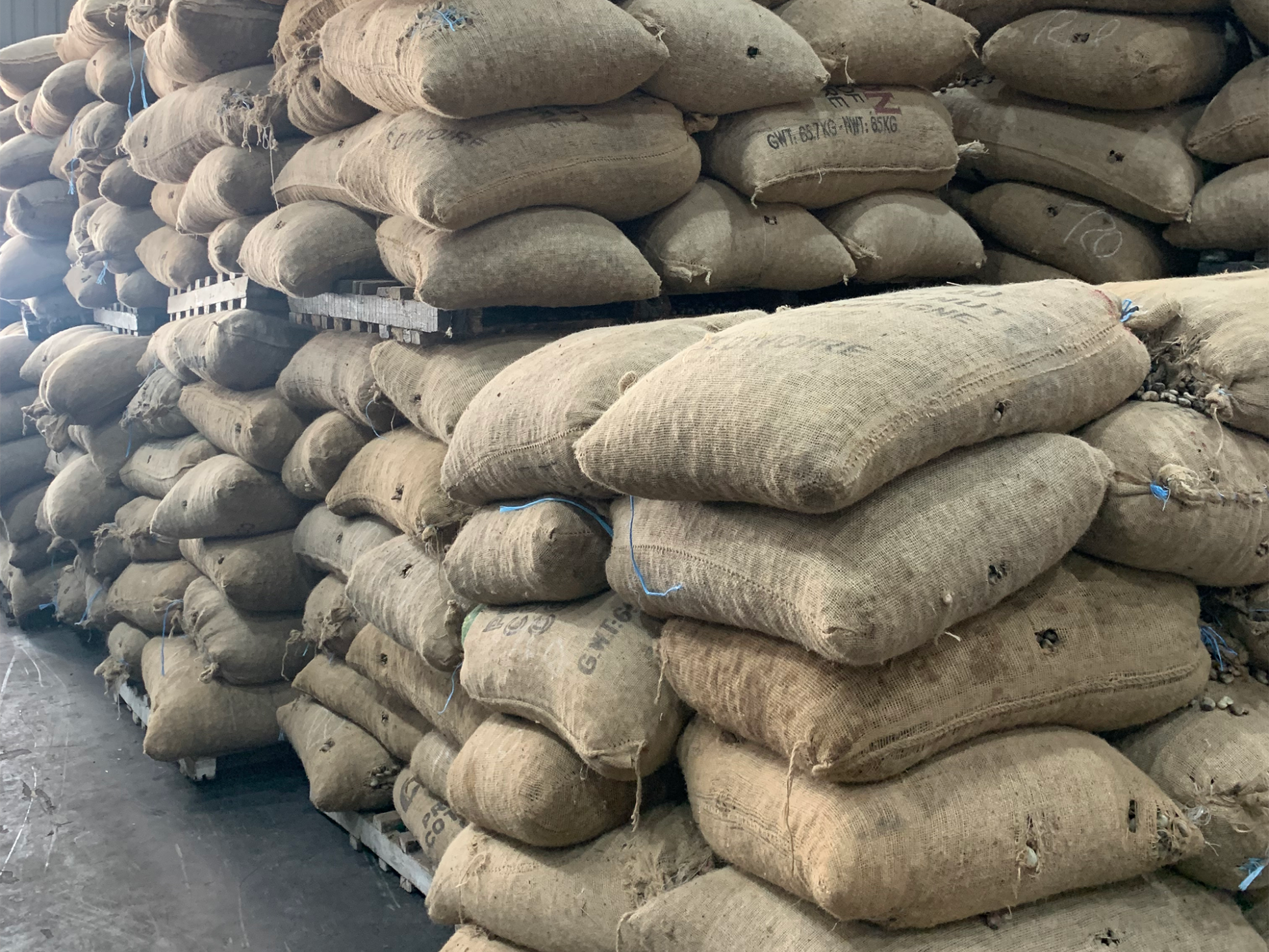
Supply Chain Timeline
Smallholder Farmers
Smallholders grow cashew trees and harvest the nuts. The nuts are detached from the cashew apple and dried in the sun.
Collectors/ Brokers
Collectors purchase and collect the raw nuts from the farmers. They are then transported to warehouses for storage.
Exporters
Usually, about 90% of raw nuts grown in Africa are shipped to Asia for processing. For this project, 100% of the cashews were precessed in West Africa.
Primary Processors
The raw nuts are cracked, peeled, and sorted according to size and colour. The nuts are then packed in bulk und stored for further transport.
International Traders
Traders ship the nuts to manufacturers around the worls for the final processing stage.
Suppliers (Roasters & Packers)
The nuts are rosted, seasoned, pasteurised an/or mixed. They are packed and transported to our ALDI distribution centres and stores.
ALDI stores
We sell the cashew nuts in our ALDI stores around the globe.
ALDI Customers
Our ALDI customers can buy and enjoy our cashew products.
ALDI's pioneering cashew products
The way forward for ALDI and cashews
These innovative cashew products demonstrate our commitment to human rights, the environment and our customers. By sourcing cashews from their country of origin, we are taking a step closer to "making sustainability affordable for our customers."
We are always trying to make our business better and offer more sustainable products. This cashew initiative will help us improve our supply chain through partnerships that benefit cashew growers and workers.

